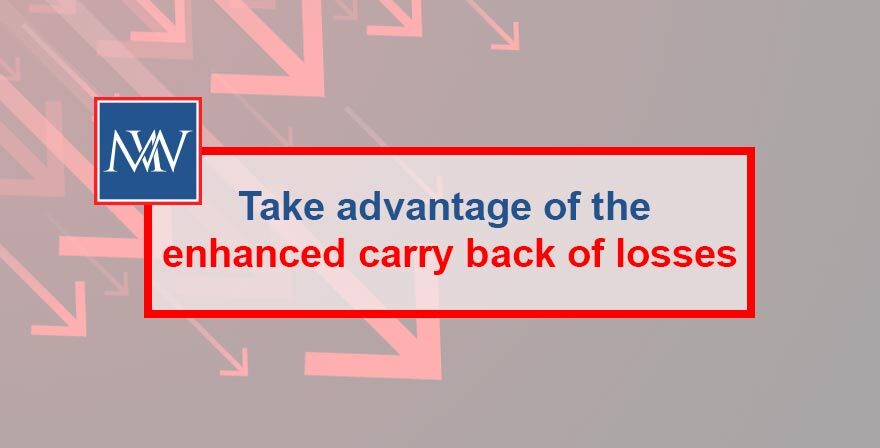
Take advantage of the enhanced carry back of losses
Many businesses have suffered losses as a result of the Covid-19 pandemic, and where a business has made a loss, various options are available to obtain relief for that loss. The challenge is to make the best use of the loss.
To help loss-making businesses, legislation is to be introduced to increase temporarily the period for which a business can carry back a loss from one year to three years. The extended carry back is available to both unincorporated business and companies, and can be used to generate a useful tax repayment at a time when cash flow is tight.
Unincorporated businesses
Under the existing rules, a person who incurs a trading loss in a tax year can make a claim to offset the loss of their net income of the current year, the previous year or both years. This option is now available to traders using the cash basis.
For a limited period, the carry-back period will be extended, and losses can be carried back and set against trading profits of the previous three years. from one. Losses carried back must be set against the income of a later year before an earlier year. The extended carry back will apply to losses in 2020/21 and 2021/22. It will enable a loss for 2021/22 to be carried back where a loss was also made in 2020/21 and the individual had no other income for that year.
Example
Lottie is a beautician. She prepares accounts to 31 March each year. For the year to 31 March 2021, she made a loss of £12,000. It is assumed that she made a loss of £7,000 for the year to 31 March 2022.
She had trading profits of £27,000 in 2019/20, £20,000 in 2018/19 and £16,000 is 2017/18.
She carries the loss of £12,000 back to 2019/20 reducing her profits to £15,000 for that year and generating a tax repayment of £2,400 (£12,000 @ 20%).
In the absence of the extended carry back, if she had no other income (or gains) for 2021/22 and no income for 2020/21, Lottie would have to carry the loss from 2021/22 forward to set against other profits from the same trade. However, the extended carry-back allows her to carry the loss back to set against trading profits of 2019/20. Although, this will reduce her profits to £10,000, which is below the personal allowance for that year of £12,500, it will generate a tax repayment of £500 (£2,500 @ 20%), which may be useful.
As the loss cannot be tailored to preserve the personal allowance, if she does not want to waste any of her personal allowance for 2019/20, she can instead carry the 2021/22 loss forward.
Companies
The extended back also applies for corporation tax purposes for losses incurred in accounting periods ending between 1 April 2020 and 31 March 2021 and losses incurred in accounting periods ending between 1 April 2021 and 31 March 2022.
For corporation tax purposes, losses can be carried back to the preceding accounting period. Where the extended carry-back applies, a loss can be carried back and set against profits of the same trade for the preceding year and two previous years, with losses being set against a later year before an earlier year.
Example
ABC Ltd makes a loss of £40,000 for the year to 31 January 2021 and a loss of £25,000 for the year to 31 January 2022. The company made a profit of £30,000 for the year to 31 January 2020, a profit of £50,000 for the year to 31 January 2019 and a profit of £42,000 for the year to 31 January 2018.
The loss for the year to 31 January 2021 is carried back and set against the profit of £30,000 for the year to 31 January 2020, with the remaining £10,000 set against the profit of £50,000 for the year to 31 January 2019, reducing it to £40,000. This generates a corporation tax repayment of £7,600 (£40,000 @ 19%).
The loss of £25,000 for the year to 31 January 2022 is carried back and set against the remaining profits for the year to 31 January 2019, reducing them to £15,000. This generates a tax repayment of £5,000 (£25,000 @20%).
Without the extended carry back, it would only have been possible to carry-back £30,000 of the loss for the year to 31 January 2021, reducing the repayment to £5,700. Using the extended carry back increases the total repayment by £6,900.
For more information , Book a Free Consultation
Need Accountancy Support?
For information on bespoke training, or if you have any other questions for Makesworth Accountant, please fill in your details below
















 151
151